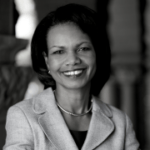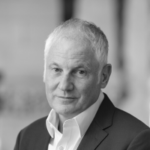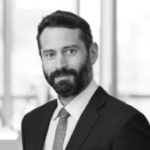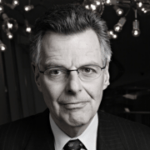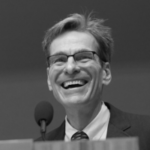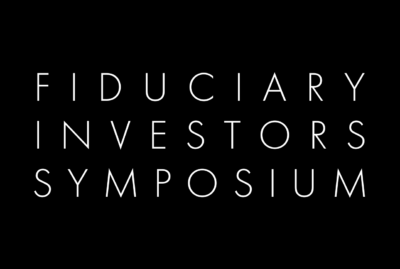Registration and coffee | Hoover Institution, George P. Shultz Building
Welcome
Condoleezza Rice, who was the 66th Secretary of State of the United States, will join Professor Stephen Kotkin in conversation about leadership and managing 21st century political risk.
One of the world’s leading experts on survey research, chief scientist of YouGov and a successful Silicon Valley entrepreneur will take delegates on a journey through the course of the upcoming presidential election where there is expected to be contested primaries, trials of Donald Trump, an economy that will contradict some expectations and major international conflicts.
INCLUDES TABLE DISCUSSION
Lunch
This session looks at the relationship between the financial system and the economy including economic growth, innovation, entrepreneurship, and inequality. It will show that how the financial system performs – and threats and incentives to performance including regulation - have enormous implications for growth, distribution of income and mental health.
Synthetic biology has been described as a transformational technology that will lead to a better world. So what is it and how will it help to feed the planet, conquer disease, fight pollution and transform industries?
Afternoon tea
This wide ranging conversation will look at the modern-day influences on the economy, politics, business and society.
After more than 100 years of historic success, the fundamentals of the energy industry are rapidly changing, driven by three ‘D’s: decarbonisation, diversification and digitisation. The question is what pathways or approaches should a business, industry, nation or region adopt to address the future challenges while navigating, leveraging and shaping the three-‘D’ landscape? This talk will offer some thoughts on addressing this paramount challenge. It will also highlight the need to innovate – to experiment with new ideas, knowing some of them will fail, but hopefully fail quickly and, more importantly, teach a lot in the process.
Yi Cui
Cocktail Reception | Hatfield Courtyard
Registration and coffee | Stanford Faculty Club, Cedar Room
Welcome
Strategic secular trends are pointing towards a regime shift in the next decade relative to the last. This session will examine these trends including re-globalisation, changing trade relationships and fiscal dominance and the implications for asset allocators.
We’ve entered a new phase where differences in pressures across countries are likely to drive central banks to “go their own way” managing policy around domestic conditions, resulting in increased macro volatility and potentially large differences in asset and FX returns. Is this the exception or a return to the norm? How is the forward-looking environment similar to the old school rates environment prior to the financial crisis, and how is it different? What are the risks and opportunities for investors.
Morning tea
AI does not have a predetermined future and can develop in different directions. This session will examine the various paths and the impacts that may have on productivity growth, the labour market and industrial concentration.
Long-term structural change in the economy does not happen every day and it is an investor’s goal to be there when it does. This session will look at AI’s potential for transformative technological change, along with where to look “outside the box’ for new investment ideas.
This session will explore the transformative power of AI in conventional asset management approaches and the potential benefits for institutional investors. It will delve into practical applications that harness AI's processing power, from running NLP over big datasets to employing supervised learning models in quant investing 2.0 for stock selection.
Lunch
This session will examine how institutional investors can embrace advanced technology to innovate and reboot their organisations for long-term performance.
INCLUDES TABLE DISCUSSION
An environment of low growth and compressed earnings is an interesting environment for investors. In the past year opportunities in distressed debt, for example, have increased threefold. So where should investors be looking for opportunities?
INCLUDES TABLE DISCUSSION
An examination of the Stanford endowment’s portfolio and purpose.
Afternoon tea
This session will examine the need to be pragmatic in optimising the investment returns of the transition to net zero. It will explore why exclusions are not the answer to a holistic multi-sector approach to global equities and the transition, and the importance of targeted engagement to more fully understand the 360-degree investment case around a company and making a lasting impact.
A discussion about the “California model” an evolution of climate investing that looks across asset classes, has an alpha generation mandate and engages with legislatures and other stakeholders.
This session will bring together voices from the public and private sectors to discuss public-private partnerships’ role in the energy transition. How can California – a state that is simultaneously leading the world in tech infrastructure and under-resourced for its traditional infrastructure – finance the energy transition in time to address an increasingly urgent climate crisis? What role can places like Stanford, public entities like the state government, and private sector stakeholders play in helping California accelerate energy transition?
Transport to conference dinner | Pick up from the Sheraton Lobby
Conference dinner | Stanford Golf Course
Arrival tea/coffee
Welcome
Institutional investors are not doing enough to manage risk dynamically, according to Nobel Prize winner and academic Myron Scholes. In this session he outlines the need for more forward-looking, holistic next-generation risk management that is an active component of investment management, not just a measurement.
This panel will explore how asset owners are striving to achieve a comprehensive total portfolio view amidst an evolving landscape of expanding asset classes, diverse data sources, and advancing portfolio management tools. It will look at the challenges of holistically assessing risk and return across the entirety of a portfolio including enhancing the alignment of private versus public market data; asset allocation versus actual implementation; and portfolio management versus risk management.
INCLUDES TABLE DISCUSSION
Morning tea
This session examines the drivers of stock-bond correlations and assesses the potential of a secular shift in the stock-bond correlation and implications for asset allocation and portfolio construction. The session also examines the outlook for inflation and fixed income markets.
INCLUDES TABLE DISCUSSION
Chief investment officers from around the globe share the experiences of how they are looking at global macro risks and opportunities and what actions they are considering to future-proof their portfolios.
Embracing neurodiversity might not just be the key to unlocking collaboration, creativity and productivity; it could be the key to better performance in investment management.

